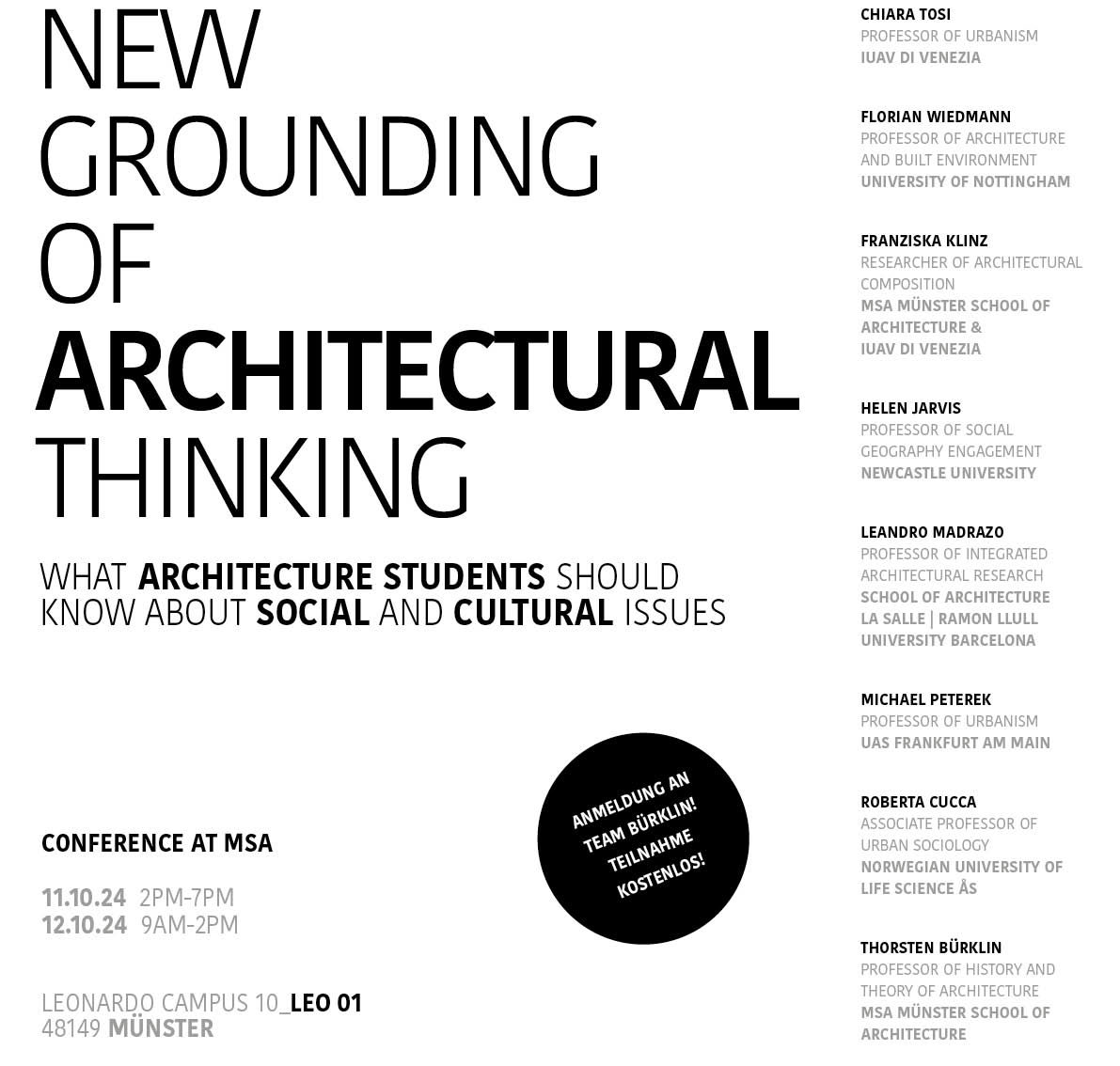
JETZT ANMELDEN!
TIMETABLE
_________________________________________
FRI 11.10.24
LECTURES 14.30-18.30 Uhr
Welfare Space
Maria Chiara Tosi
Università IUAV di Venezia
Beyond Green Gentrification. Building just Sustainable Cities
Roberta Cucca
Norwegian University of Life Science
(Re)engaging with the Humanity of (Social) Architectural Thinking: Issues and Implications for Inclusion and Social Purpose in Architectural Education
Helen Jarvis
Newcastle University
Between Self-Build and Globalized Architecture
Michael Peterek
Frankfurt UAS
BBQ AND GET TOGETHER 18.30 Uhr
_________________________________________
SAT 12.10.24
LECTURES 9.30-13.30 Uhr
Minimalism - Style or Method?
Franziska Klinz
MSA Münster School of Architecture
High-density Housing and Neighbourhood Formation: Contemporary Development Trends of Residential Blocks with Shared Courtyards in European Cities
Florian Wiedmann
University of Nottingham
Architectural Education in Transition: From Prescribed Models to Open Learning Environments
Leandro Madrazo
School of Architecture La Salle | Ramon Lull University Barcelona
Programming and Sampling. Architecture and Responsibility
Thorsten Bürklin
MSA Münster School of Architecture
_________________________________________
The Conference
Participants of the conference shall give answers to the question: What Architectural Students Should Know About Social and Cultural Issues. Thus, the reflection must go beyond the (very important) instrumental and technical aspects of architectural production. It also must leave behind mere preoccupations with aesthetics. Since architecture puts into form what does not belong to architecture, the conference is about grounding architectural thinking. Best practice examples will help to illustrate intellectual concepts. In every case, the focus is on how to create intellectual foundations for architectural and urbanistic work. This discussion is necessary in view of the changed living and working conditions after the times of affluence.
The participants of the conference are experts in social and cultural questions regarding architecture and urbanism. Given the worldwide problems, they will reflect ways of collaborative thinking and community-based planning as a fundamental step towards creating livable neighborhoods and cities for all. An important point in this discussion will be the reflection on gender and a social city to create. Since any transformation nowadays must deal with climate change a central focus will lie on how social and cultural reliability of planners - who form space for all and not for the few - can be connected to the reduction of means (of planning, and construction) available. The task is to create an intellectual horizon that allows a positive approach to the present challenges. However, this also means to reflect on the past and where we come from.


